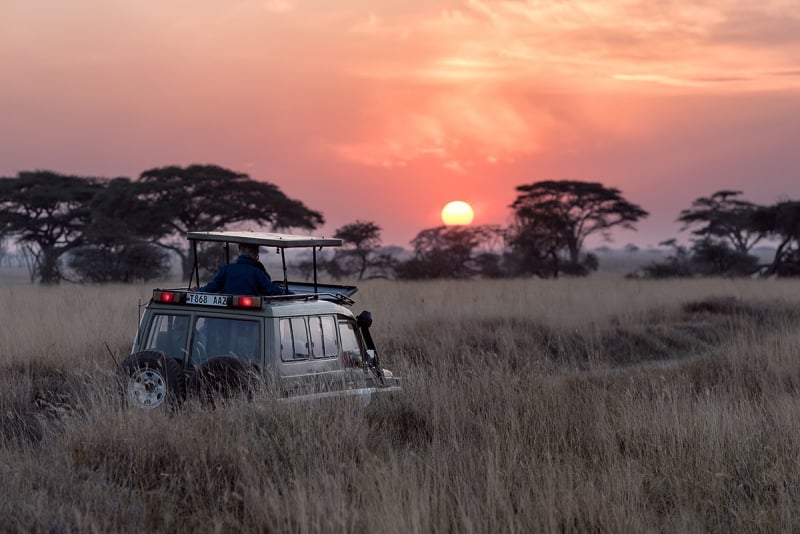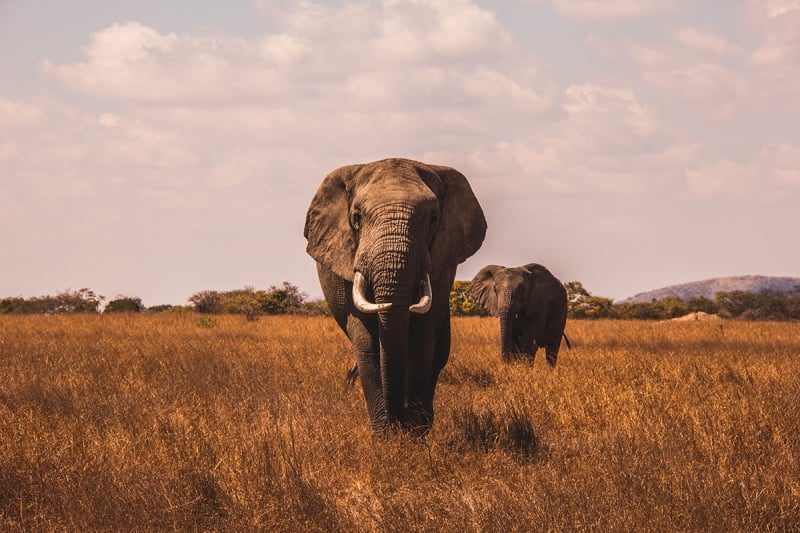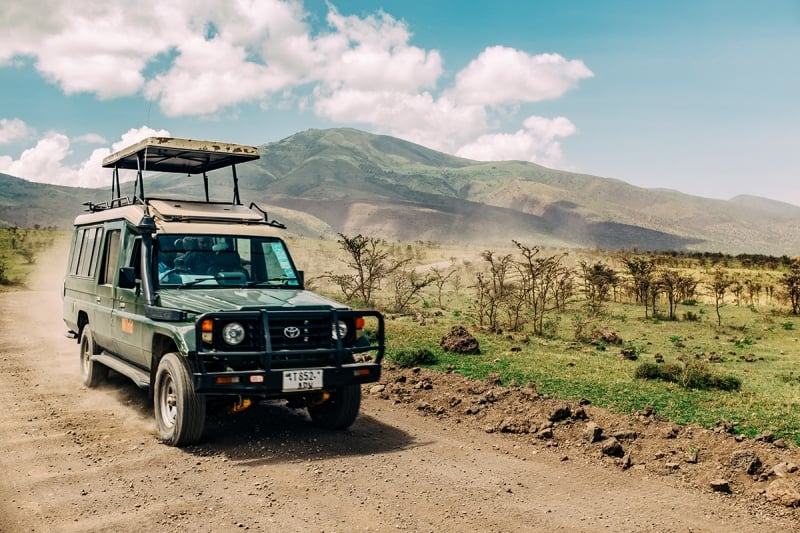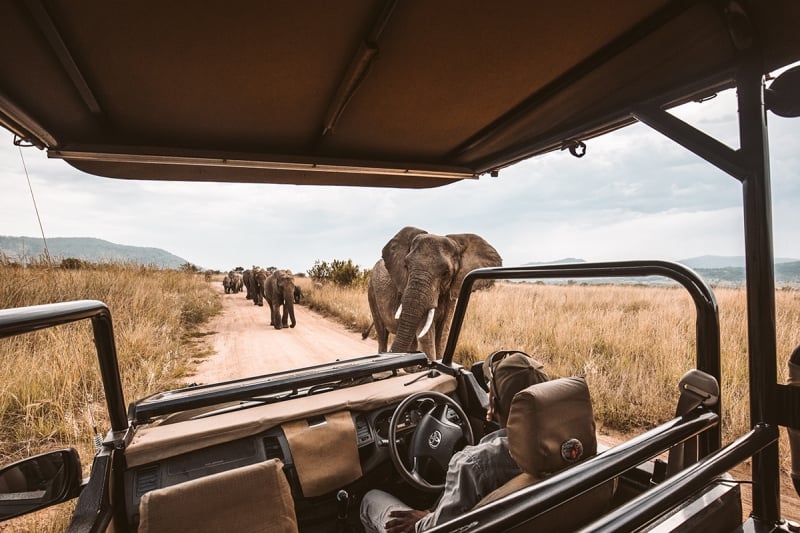Going on a safari holiday to Kenya, Tanzania, or Botswana is a dream shared by travellers across the world. Images of herds of wildebeest grazing at dawn while lions stalk them are seared into our collective popular imagination and with good reason: Safari holidays make for an unforgettable, once-in-a-lifetime experience.
That said, these types of getaways do not come cheap and are beyond the means of many, even travellers who belong to the comfortable classes. As such, safari holidays are usually reserved for honeymoons or to celebrate a hard-earned retirement.
Flights, guides, permits, hotels, and park fees can easily add up to tens of thousands of dollars and so the last thing any of us want is to have to then find an extra wedge of cash to pay bank transfer, card, or foreign transaction fees. Not sure what we mean? Then read on.
Also read: Beyond Tanzania’s African Safaris: Discover Zanzibar’s Sandy White Beaches!
Paying for your safari holiday

Image credit: Hu Chen
If you book a safari adventure in your home country using a domestic travel agent, then none of the following will apply. The agent will bill you in your native currency, and you will pay them using a credit card, a debit card, or a bank transfer and they will take care of everything.
But of course, utilising travel agents often come with extra charges for their services. That’s why it’s better that you arrange your safari tour directly with a provider based in Africa. So what is the best way to pay them?
Paying for safaris using bank transfers

Image credit: AJ Robbie
To book your safari you will need to pay for it way ahead of time. The provider based in Nairobi or Gaborone will quote you a price in Shillings and probably ask you to pay by bank transfer. However, if you use the bank as a payment method, the trip will cost you substantially more than it should.
Let’s say the quote for Safari is KSh1,250,000 (~S$13,187.10). We jump onto XE and see that that equates to about $10,072. However, if we then contact our bank to organise the money transfer, a few things happen.
Firstly, whenever banks execute an international payment using their SWIFT system, they charge a fee. In the US, these fees can range from U$2.75 to U$50 in some cases and when you are sending money to Africa, you can usually expect the higher end of the scale to apply.
Furthermore, the recipient’s bank will also charge a fee which the Safari provider will almost certainly be expecting you to pay. But there is more! If an intermediary bank is used (such as when your bank and Bank of Kenya don’t have a direct relationship) they will also charge a fee. It is not uncommon for Americans to incur US$100+ in fees when sending money to Africa.
That is not all though. When we send money from our bank abroad, our bank handles the currency conversion. They change the money into the recipient’s currency and then forward it on. Rather than use the open market exchange rate though, they use a “marked up” rate which allows them to make 2-4% on the transaction at the customers’ expense.
Therefore, that US$10,072 safari trip could easily end up costing an extra US$100 in bank fees, and US$406.88 in bank foreign exchange markups!
Using a credit card internationally to pay for a safari tour

Image credit: Ashim D’Silva
More likely than not, you were already considering paying for the safari by credit card anyway. After all, they offer all kinds of protection and as long as you remember to pay the balance, you don’t incur any fees or interest.
However, even if you are using your credit card, it will count as an international transaction because you are paying a recipient bank abroad, using a different currency than the one your credit balance is held in. Using a credit card abroad carries some complications and costs.
Like banks, credit card companies apply a mark-up exchange rate on all foreign currency transactions; now you know why they always encourage you to use it when on vacation. This rate tends to run between 2-3% in the US. That means that paying for the KSh1,250,000 will cost you around US$10,323.80. As you can see, Using a credit card in a foreign country or to pay for a safari is a big improvement on using the banks but things could still be better.
Paying for a safari using a money transfer specialist

Image credit: redcharlie | @redcharlie1
Money transfer companies are regulated and licensed financial services providers who essentially undercut the banks on international payments by offering customers lower fees and better foreign exchange rates.
There are many money transfer specialists operating in the US but for this example, we will focus on the UK/Estonian-based fintech neobank, Wise (formerly Transerwise).
Wise offers fast, low-fee money transfers across the world and uses applies foreign exchange markups that range between 0 – 1% depending on the currency in question. In the case of Kenyan Shillings, Wise is currently offering the “real exchange rate” but is taking a fee of US$90. Using Wise, to ensure that the Safari operator in Kenya gets the 1,250,000 they are expecting for the safari, we would need to pay US$10,090 making it the best deal by far.
Also read: 10 Memorable Things to Do In Tanzania, “The Soul of Africa”!
Final Thoughts
As you can see, paying for that dream safari holiday is more complicated than it may initially have seemed. There are several different methods available and each carries costs. Using a bank as a payment method is the most expensive and using a credit card internationally is a slight improvement but still costly. By far though, the cheapest method is by using a money transfer specialist such as Wise.




